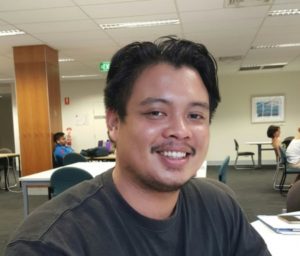Surfing communities saving their waves from plastic waste
Chuck it in the bin
Two best mates, Andrew Turton and Pete Ceglinski, have created an innovative new technology to clean up our oceans. The pair are surfers based in Western Australia and with the help of seed funding, have developed what is called the Seabin.
The idea is that the Seabin can help clean up marinas, ports and yacht clubs of water pollution, as these areas are places of high human activity and prone to fuel pollution.
Product design in waste management technology is one of the many avenues for innovation in tackling the issue of sea pollution. There are even more gnarly inventions over at Oceanwatch.org.au.
How it works:
The mouth of the Seabin floats at the top of the waters surface and creates a stream of water that sucks debris into its natural fiber bin bag. The water is then pumped back out, leaving the waste inside the bin.

Get stuffed!
In Zambales, central Philippines, a group of surfers have started the “Stuff It” challenge - stuffing the rubbish they find on beaches into plastic bottles as a way to re-purpose the debris polluting the waves they surf. These plastic bottles are then integrated as bricks used to build the walls for a nearby eco-hostel.
Co-founder of the Circle Hostel, Rafael Dioniso, noticed that the issue of plastic debris was dire in Liwaliwa when paddling out, he had to stuff his pockets with the rubbish floating by.
Through design thinking and innovative recycling, the Circle Hostel has gained a resource to help build their infrastructure whilst preserving the most valuable resource of all to their industry, their beach.
This also means that the hostel can better promote its values as an eco-tourism destination, as it actively takes part in the environmentally conscious infrastructure development of Zambales.
A beach worth saving - Zambales, Philippines.

Hang Five!
German expatriates now based in Brisbane, Australia, have developed a surfboard fin made from the washed up rubbish of Bali’s beaches. Felix Wunner and Louise Grossman are founders of Five Oceans and the ecoFin, an innovative surfboard fin made with recycled waste.
(The Five Oceans story is about creating sustainable supply chain)
As surfers themselves, Wunner and Grossman have created a sustainable supply chain using existing recycling and waste management networks in Indonesia. The plastics found on the beaches of Bali and Java are recycled as polypropylene composites which are then shipped to a Brisbane manufacturer to produce the eco-fins.

The future of boards is dropping in
Move over old timers, the ECOBOARD is set to drop! A project by Sustainable Surf, founded by social entrepreneur Michael Stewart, has set to task in partnering with the biggest names in surfing to promote their sustainable product the ECOBOARD.
In a $7 billion industry, carving space in the market is no easy task and it depends highly on changing the mindsets of surfers worldwide. For now, boards made from recycled materials only constitute for ten percent of the market. But the tide is rolling in, with big wave legends Greg Long and Dave Wassel backing the sustainable surfboards.
Polyurethane has accounted for the majority of surf board manufacturing in the past fifty years but now, social enterprise is leading the way in innovating designs using more sustainable materials.
Early prediction is that the future of competitive surfing is in expanded polystyrene, which can be made from recycled materials. Even Reef has sponsored Sustainable Surf's 'Waste to Waves' program, an initiative to collect Styrofoam packaging from surf shops to be recycled into Envirofoam.
Watch the legend Rob Machado carve up an eco-board.
Author: Magnus Garciano


